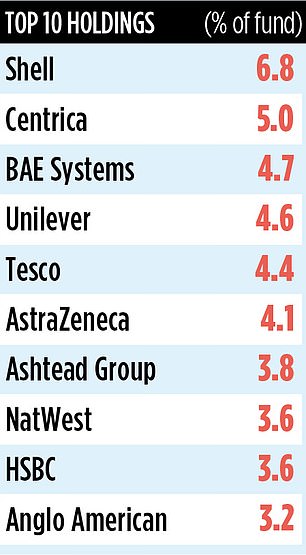EDINBURGH: £1 billion confidence is recovering and UK plc is next, its boss insists
EDINBURGH: £1 billion confidence is recovering and UK plc is next, its boss insists
Investment trust Edinburgh, a £1 billion fund that invests mainly in UK shares, has undergone something of a renaissance since new managers were appointed to run it in spring 2020.
The share price has rebounded sharply, but there is more to come, emphasizes chief fund manager James de Uphaugh, who works for investment house Liontrust.
Although the jury is still out on whether or not the British economy will enter a recession, De Uphaugh remains optimistic. He believes the economy is not in bad shape – and is in a much better place than last October, when utility bills soared and bond prices soared.
He also says there are many good British companies. The only thing missing, he says, is that the better economic news is not being reflected in the value of many UK shares. “Stock markets are all about changes in perception,” he adds. ‘The perception at the moment is that UK plc is struggling.’
When the UK stock market is reassessed, De Uphaugh is confident the trust will do well, especially as the fund’s share price does not fully reflect the value of its underlying assets. The shares are currently at a nine percent discount to the value of the assets.
The trust, previously managed by investment company Invesco, is invested in 50 shares, mainly FTSE 100 companies. Although most of the shares the company holds are in strong market positions, De Uphaugh says he takes a flexible approach and invests in a number of themes.
“The idea,” he explains, “is to have a dynamic portfolio that will perform reasonably well in all market conditions.” We conduct a lot of in-depth fundamental research into the companies we invest in and investigate their market position. We also consult with management.’
For example, the portfolio consists of companies that have undergone a recovery against expectations. He loosely calls this the ‘revenge of the incumbent’ and counts Marks & Spencer among them.
“M&S is growing market share in key food and clothing areas,” says De Uphaugh.
“Sales are growing tremendously, while some of its competitors have fallen away.”
Other important themes – and there are eight in total – include ‘Darwinism’ and ‘ESG rehabilitation’, where ESG stands for Environmental, Social and (corporate) Governance.

“Whitbread, owner of Premier Inn, is an example of Darwinism in action,” he says. ‘Prime Minister is only getting stronger and stronger. It pays no money in booking fees to third parties and has a good hotel portfolio. It also operates in the budget price market which is popular in the current cost of living crisis.”
On ESG rehabilitation, he says both HSBC and Standard Chartered fall into this category due to their key role in financing green initiatives. Since De Uphaugh and his team took over management of the trust, they have generated an 85 percent return for shareholders. By comparison, the benchmark, the FTSE All-Share Index, has achieved a return of just over 50 percent.
The trust generates an income equal to approximately 4 percent, with dividends paid quarterly. But unlike many rival income-focused mutual funds, it cut its dividend in the financial year to the end of March 2022.
“It was the wise thing to do,” De Uphaugh emphasizes. “It means we pay dividends to shareholders that are consistent with the income we get from our holdings.”
The trust’s market ID code is 0305233 and its ticker is EDIN. The annual costs total 0.53 percent.
